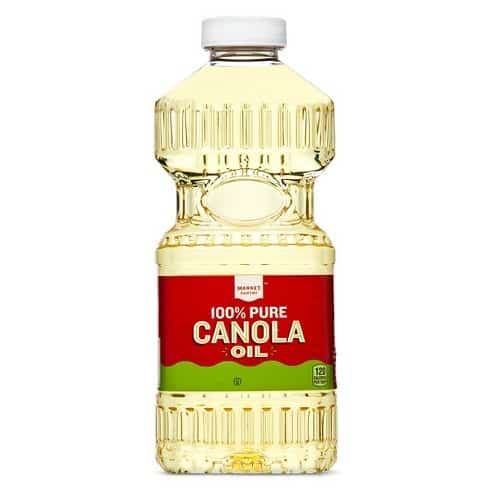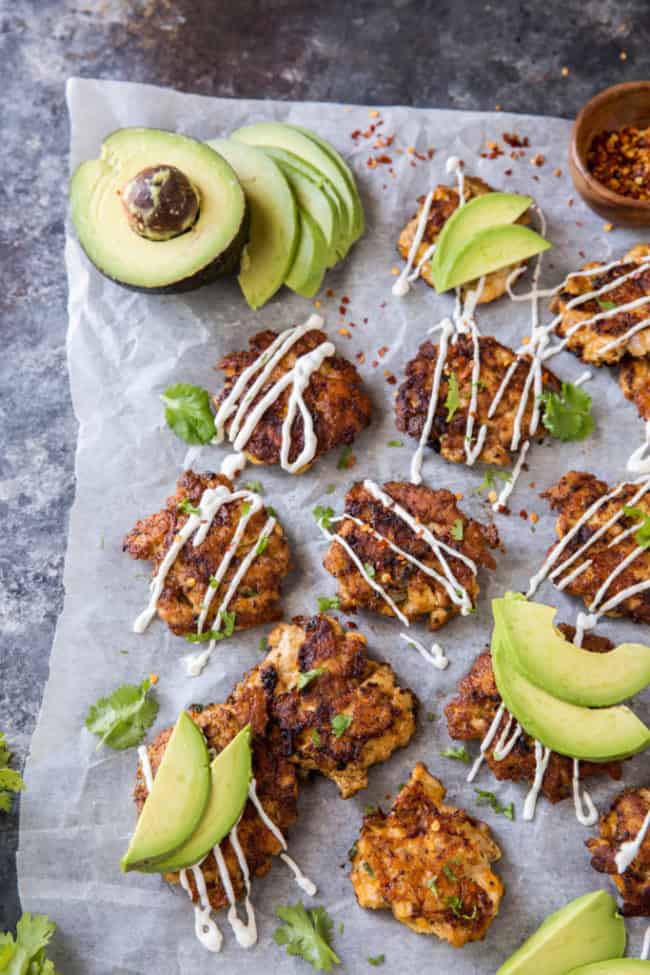The Beyond Burger is far from natural and it’s not nutritious. Though the company claims to solve issues regarding human health and climate change, we don’t buy all of it.
Beyond Meat says their mission is is to create delicious plant-based burgers using “simple”, plant-based ingredients like methylcellulose, gum arabic, and vegetable glycerin. You know, the same “simple” ingredients that go into cosmetics and wallpaper glue.
How sustainable is the plant-based diet that Beyond Meat promotes? And are plants really healthier than beef? Let’s find out.
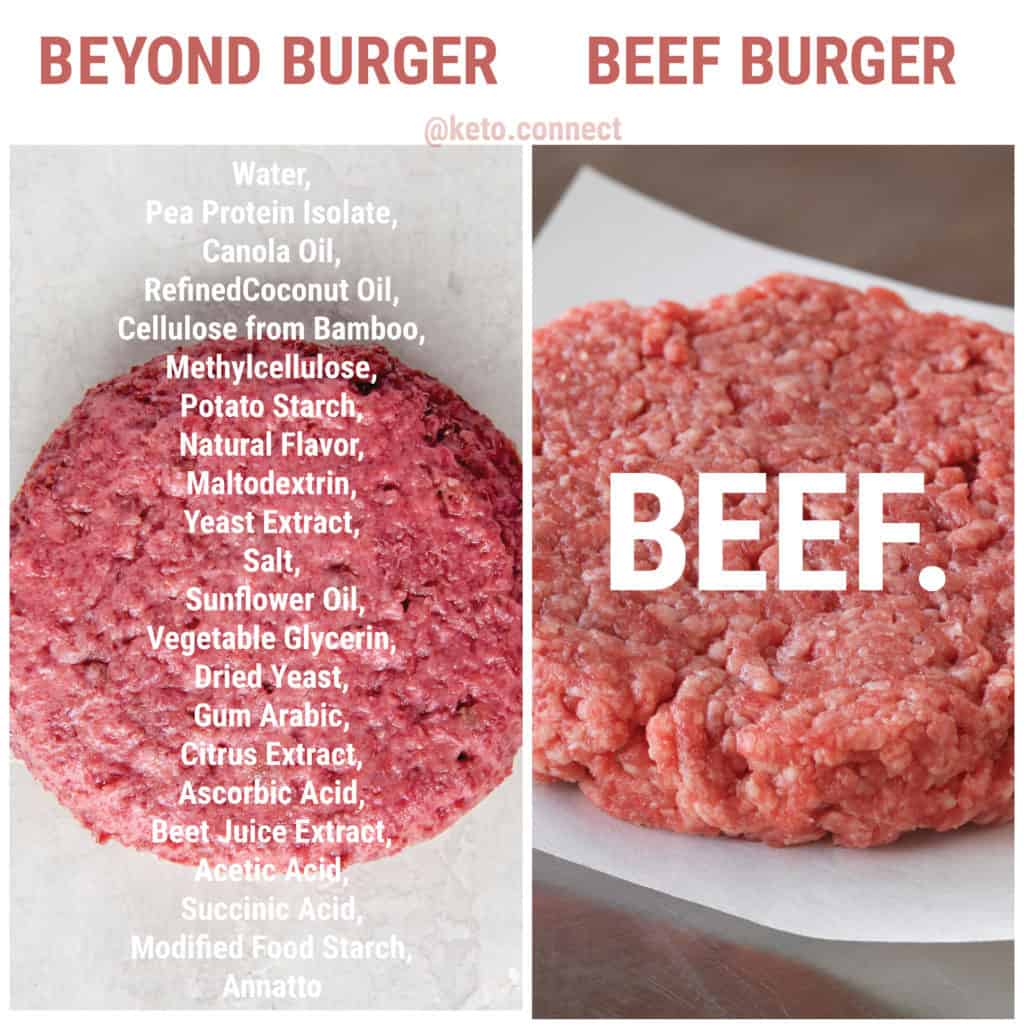
Beyond Burger Ingredients
Water, Pea Protein Isolate, Expeller-Pressed Canola Oil, Refined Coconut Oil, Contains 2% or less of the following: Cellulose from Bamboo, Methylcellulose, Potato Starch, Natural Flavor, Maltodextrin, Yeast Extract, Salt, Sunflower Oil, Vegetable Glycerin, Dried Yeast, Gum Arabic, Citrus Extract (to protect quality), Ascorbic Acid (to maintain color), Beet Juice Extract (for color), Acetic Acid, Succinic Acid, Modified Food Starch, Annatto (for color).
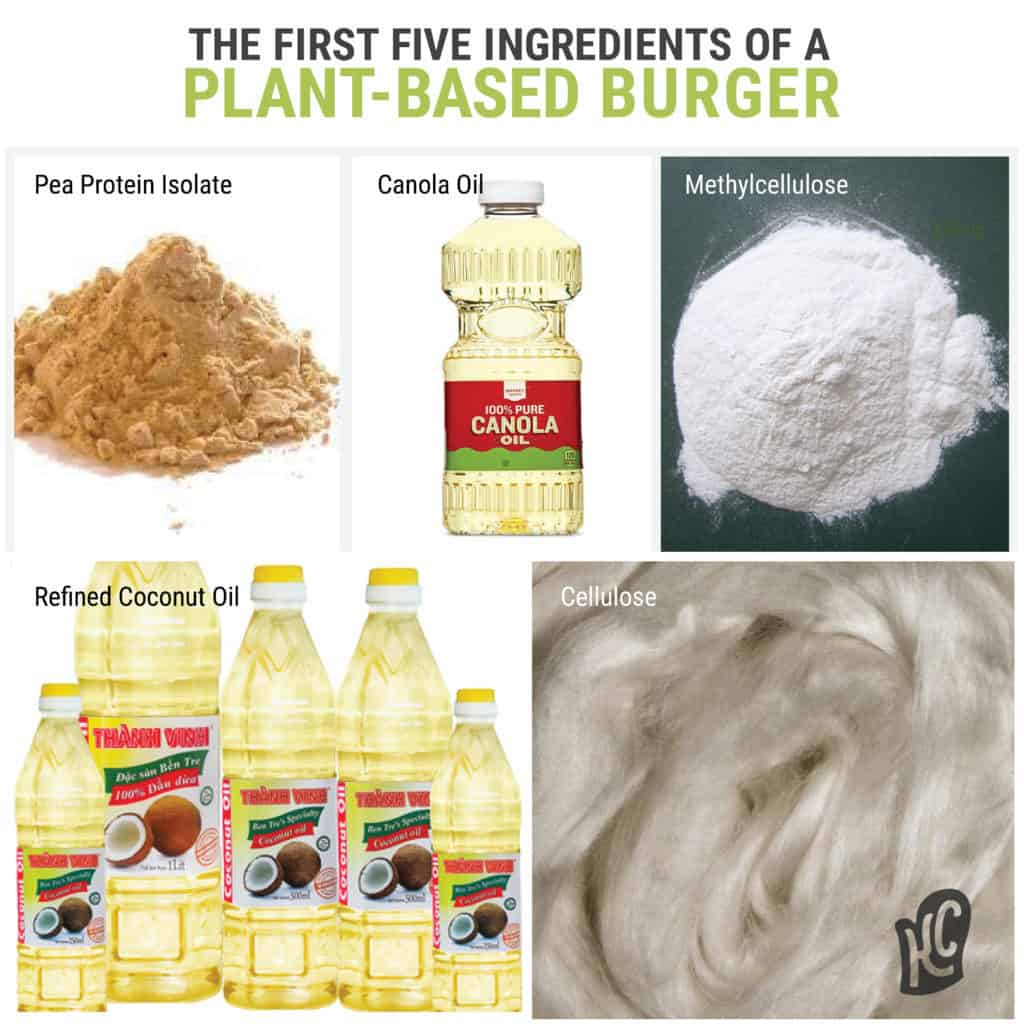
Highly Processed Plants
Take a closer look at all the ingredients in the Beyond Burger and try to imagine how each ingredient was made. It most likely took a lot of grinding, extracting, heating, cooling, and processing before it made it into the burger.
The First Five Ingredients
1. Pea Protein Isolate
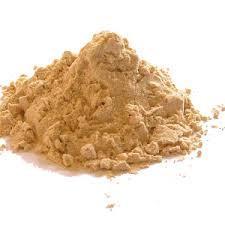
Extracted from the yellow pea and used by meat-alternative manufacturers. The peas are dried, hulled, turned into a flour, have their PH level adjusted to remove the protein, then the protein juice gets pasteurized. After some more processing, filtering, and drying, you end up with Pea Protein Isolate.
2. Expeller Pressed Canola Oil
Most of the canola oil on grocery store shelves is removed from the canola seed using chemical solvents, but expeller pressed means the oil was removed using high pressure. While Expeller-Pressed Canola oil is better, it is still refined, bleached and deodorized under high heat. This strips a lot of the natural color and flavor from the oil, along with many of the nutrients.
3. Refined Coconut Oil
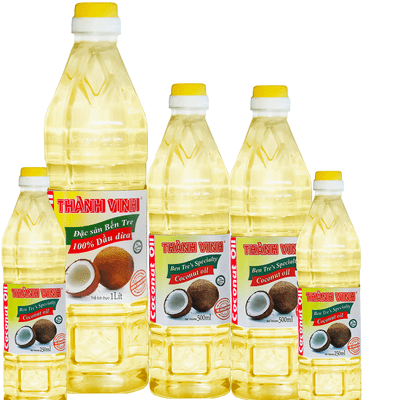
Just like other refined oils, refined coconut oil undergoes high heat processing and gets bleached until it becomes stripped of most of its coconut aroma, flavor, and nutrients.
4. Methylcellulose
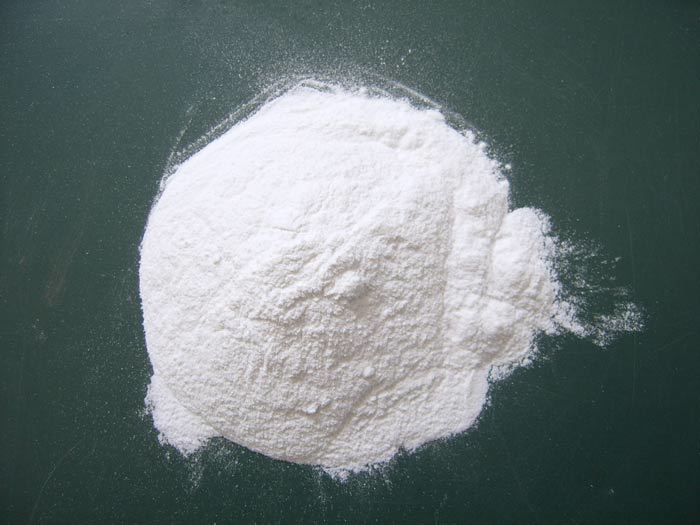
Methylcellulose is synthetically produced from heating cellulose. It is used as a laxative, a thickener in food and cosmetic products, but its most common use is as wallpaper glue.
5. Cellulose from Bamboo

Cellulose is manufactured much the same way synthetic fibers like polyester and nylon are made, by turning the plant into a pulp and extracting the fibers.
The main uses of cellulose fibers are in the textile industry and as chemical filters. It was used to produce the first successful thermoplastic polymer, which is a pliable plastic.
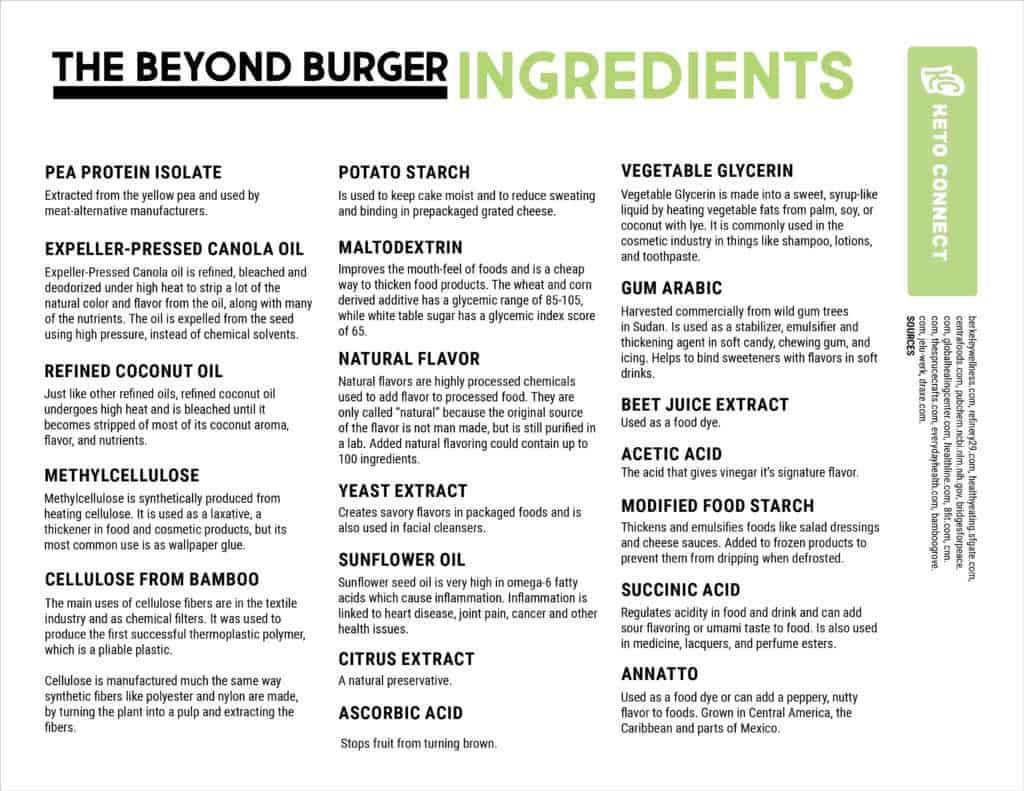
The Low Bioavailability of Beyond Burger
The Beyond Meat website had this graphic (shown below) on their website showing the “pros” and “cons” to each of the burgers. As you can see, the Beyond Burger weighed in as the winning burger in terms of health. Let’s take a closer look at those claims.

22 Grams of Incomplete Proteins
Most plant-based foods like the Beyond Burger are made with incomplete proteins and must be combined with other plants to get all the correct amino acids that form complete proteins. Pea protein does not contain methionine, which you would have to supplement with either animal protein other plant proteins like rice.
Luckily, meat contains all the essential amino acids that make up complete proteins.
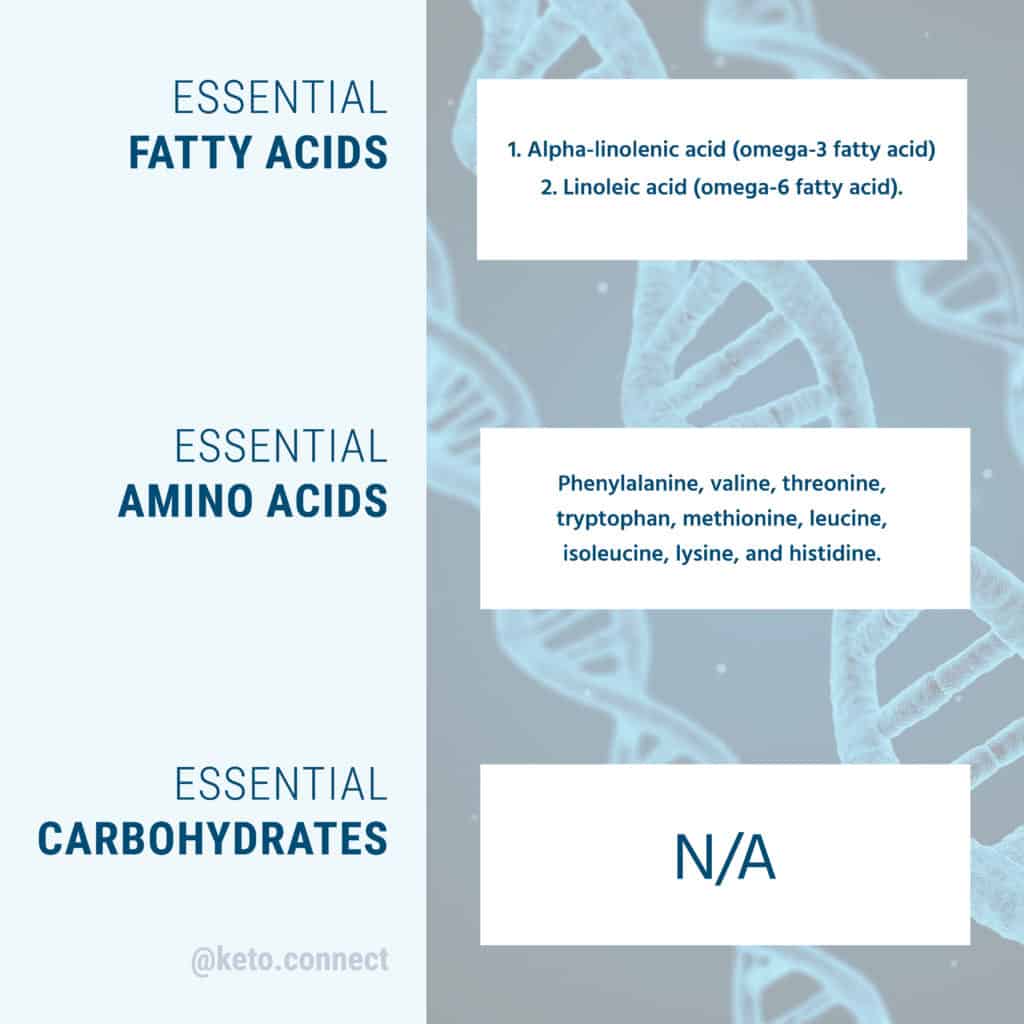
Phytochemicals in Plant Protein
The majority of plants that are high in protein are found in seeds (beans and nuts) which often contain high phytochemicals. Plants produce Phytochemicals to help them thrive or fight competitors, pathogens, or predators. (Yes, plants consider humans predators.).
Phytochemicals can contribute to malnutrition, digestive distress, thyroid disorders, immune system breakdown, infertility, autism, ADD, ADHD, allergies and even heart disease and cancer, according to The Weston A. Price Foundation’s article, “Plants Bite Back“.
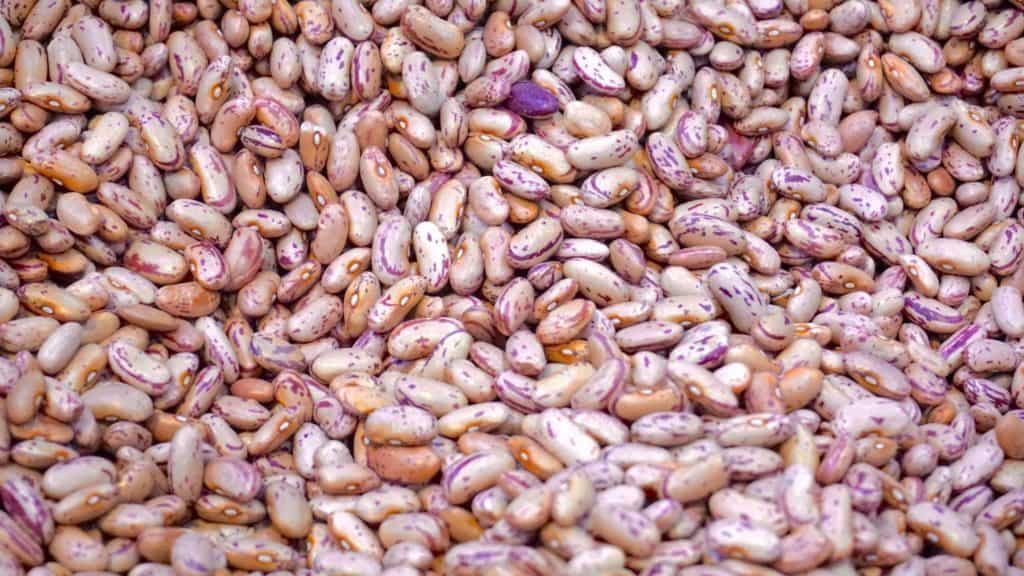
Vegetarians are Iron Deficient
There are two types of iron, plant iron, (the non-heme version) and animal iron (heme iron). The animal iron in the beef patty is at least THREE TIMES more bioavailable than the plant iron in the Beyond Burger.
The plant-based patty also contains antinutrients like phytates, tannins, and lectins that all prevent the absorption of iron.
What are Antinutrients? Naturally occurring compounds in plant foods that act as the plant’s defense mechanism. They limit the bioavailability of vitamins and minerals. Here are some of the antinutrients found in legumes or the peas protein in the Beyond Burger.
- Phytates: Can decrease the absorption of iron, zinc, magnesium, and calcium.
- Lectins: Interfere with the absorption of calcium, iron, phosphorus, and zinc. Damages the intestines and can cause joint pain.
- Saponins: Damage intestinal lining, red blood cells, enzymes, and mess with thyroid function.
- Tannins: Can decrease iron absorption.
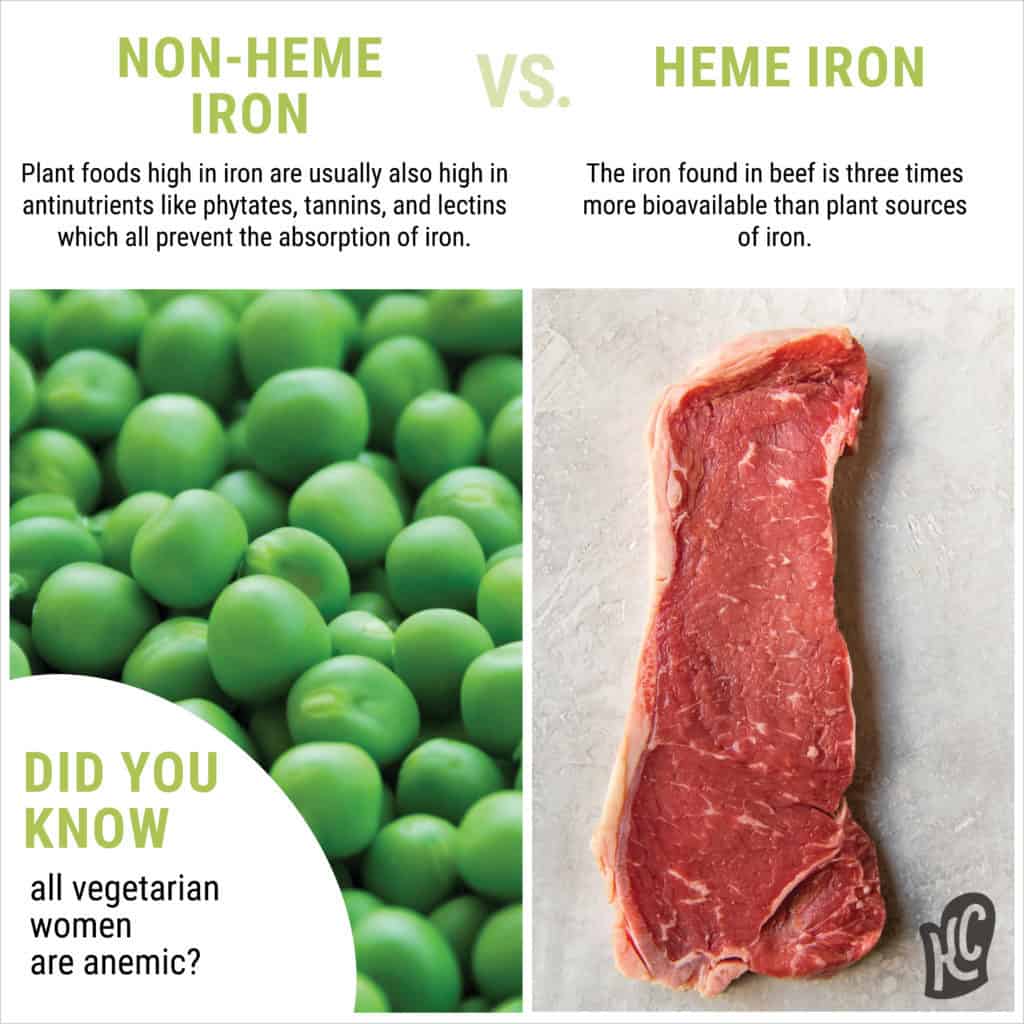
Link to study on Anemia Prevalence in Vegetarian Women
Cholesterol is Important
Cholesterol is what makes up the cells in our bodies. It is vital for hormone production, digestion, and vitamin absorption, and makes up 25% of our brain. One of the main reasons we sleep is so our body can produce cholesterol to regenerate our cells.
There’s no connection between cholesterol in food and cholesterol in blood. This is a myth that has been busted time and time again.
Cholesterol accumulates in arteries due to inflammation, which is caused by a high carb diet, high insulin levels, processed foods, stress, smoking, and heavy alcohol use. Simply put, eating healthy fats increases good cholesterol, and eating sugar increases bad cholesterol.
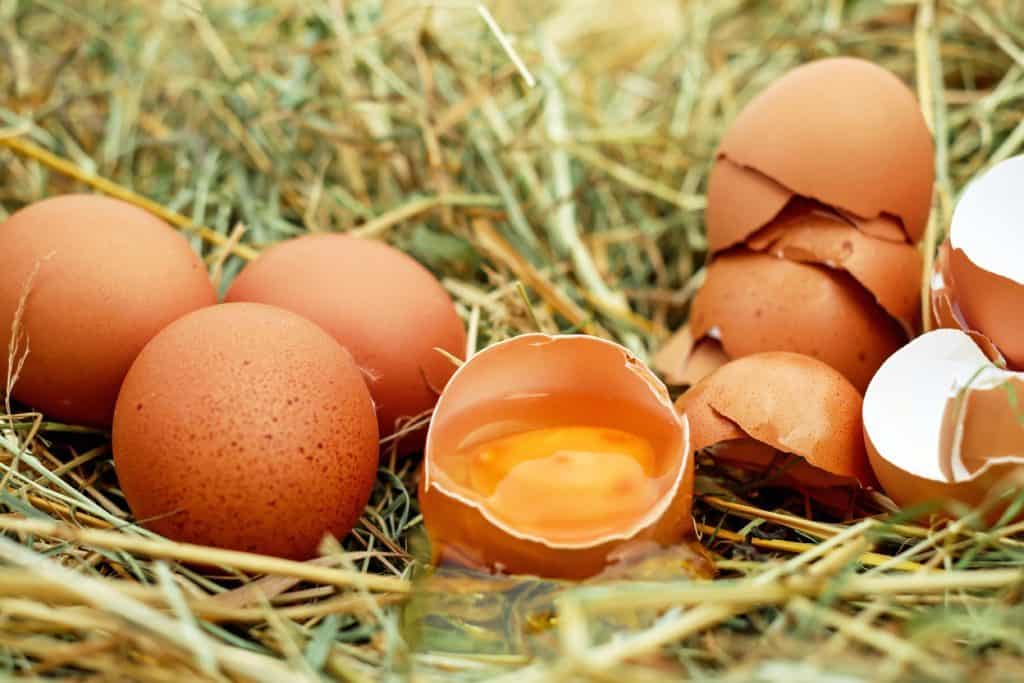
Saturated Fat is not the Bad Guy
Since the 1960s, saturated fat has been said to cause heart disease and obesity, but this isn’t true. The research conducted by Ancel Keys on saturated fat wasn’t all there yet, and the government made quick conclusions based on his flawed findings which lead a nation to believe saturated fat is dangerous.
The Sugar Research Foundation wasted no time writing their own article in 1965 pointing the “heart attack” finger at saturated fats, even though the SRF’s own research team discovered a strong correlation between SUGAR and heart disease.
Saturated fat makes up half of all cell membranes in your body. Dietary saturated fat is the most stable out of all fats, making it essential to keeping your cell membranes strong. Not to mention, it’s a high quality source of energy, and high in fat soluble vitamins.
High in Refined Vegetable Oils
The 22g of fat in the Beyond Burger come from refined vegetable oils. Refined vegetable oils are low in healthy saturated fats and high in Omega-6 which can cause inflammation in the body. Inflammation is linked to heart disease, joint pain, cancer and other health issues.
Beyond Burger Blames Beef for Environmental Issues
We’ve never really delved into a topic as daunting as greenhouse gases on the KetoConnect blog, but when we began investigating the Beyond Burger, we were skeptical of the marketing messages used on its products.
Beyond Burger attributes climate change and the constraints of natural resources to livestock production, and claims a plant-based burger can “solve” these growing issues. Let’s look at the numbers.
US Largest Sources of Greenhouse Gas Emissions
According to the U.S. Environmental Protection Agency, the largest sources of U.S. GHG emissions in 2016 were listed as the following.
- Electricity production (28 percent of total emissions)
- Transportation (28 percent)
- Industry (22 percent).
- All of agriculture (9 percent).
- All of animal agriculture ( 3.9 percent of total U.S. greenhouse gas emissions.)
Why are cows receiving so much of the blame with there are other changes you can make that will have an even greater impact on the planet?
Better Ways to “Go Beyond”
Avoiding one flight across the ocean or living car-free is more effective than following a plant-based diet. (And you don’t have to cut out any essential sources of protein and nutrients.)
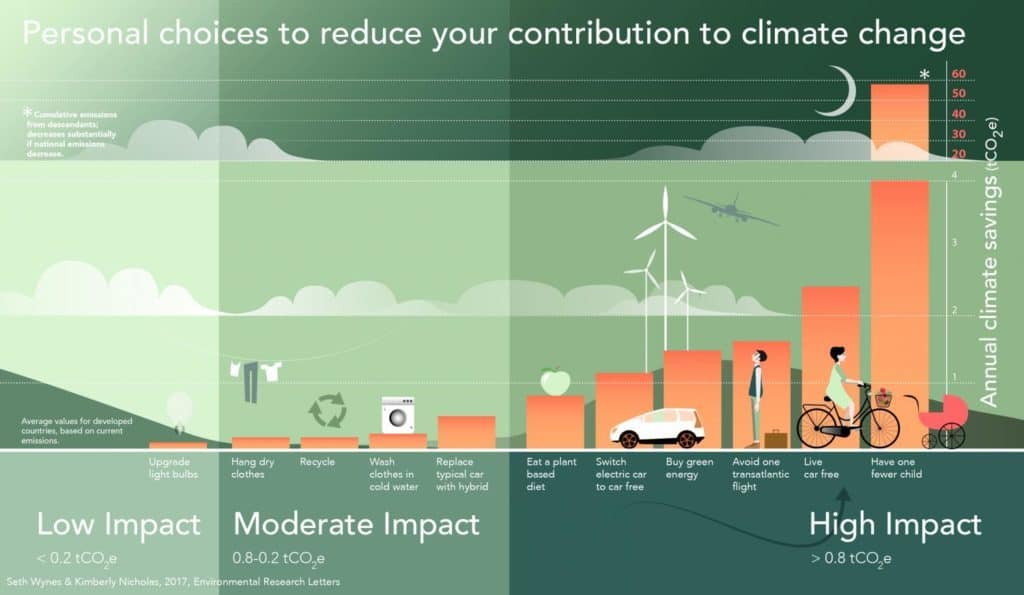
America is already Plant-Based
America’s red meat consumption has gone down, but people are eating 25% more calories than they were in the 60s. What are they eating? Plant-based, processed, unhealthy foods.
The top five sources of calories in the US today are grain based desserts, breads, chicken dishes, soda, and pizza. Beef is number nine on the list.
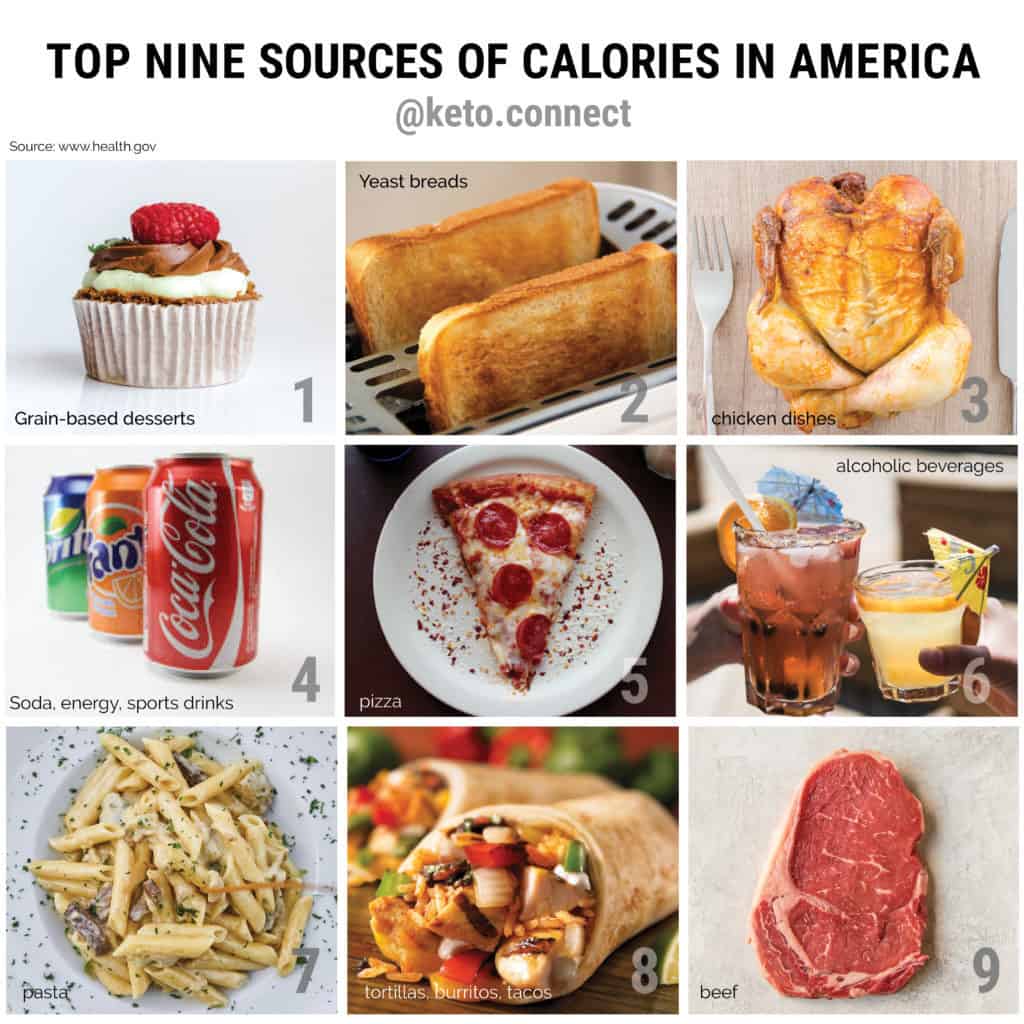
A study showed that if everyone simply reduced the number of calories they consumed, without changing the proportion of meat and other food types, it could cut combined emissions, energy and water use by around 9 percent.
Many of our keto readers know by replacing processed grains and sugars with whole foods, they feel fuller, more satisfied, and they naturally eat fewer calories.
Bacon is “Greener” than Lettuce
Not only do nutrient dense animal foods fill you up, many of them require less resources than plant foods. That’s right, lettuce produces three times more greenhouse gas emissions than bacon.
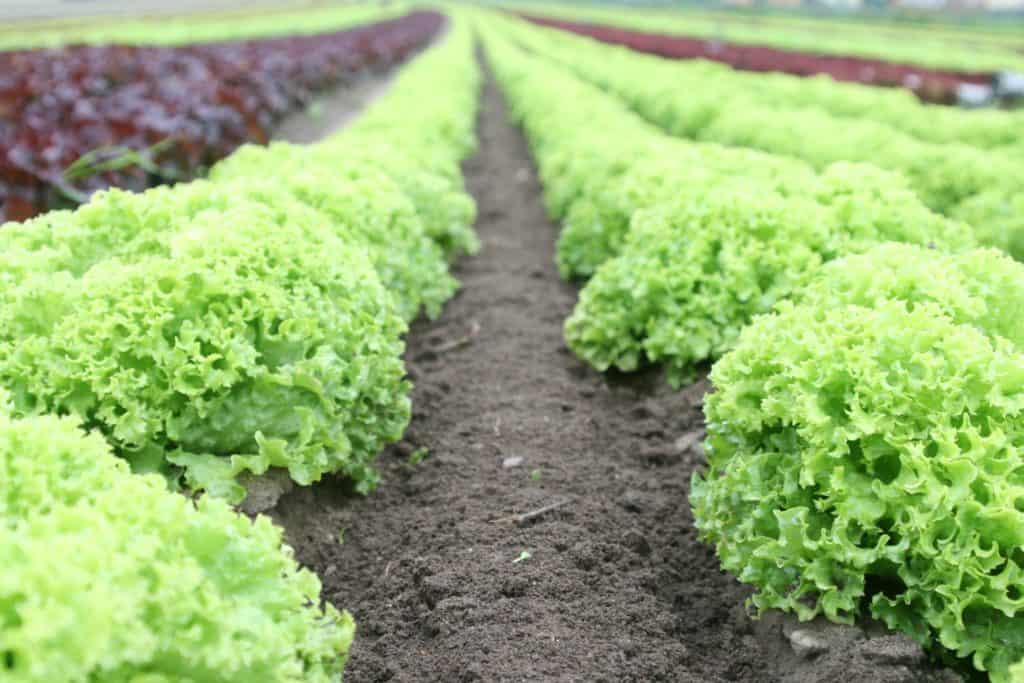
The USDA Guidelines Increase Greenhouse Gas Emissions
The USDA guidelines currently advise about five cups of fruits and vegetables, six ounces of grains, and only 3 oz. of animal protein (meats, poultry, and eggs) per day.
If everyone ate according to the USDA’s recommended food patterns, this would actually increase energy use by 38%, blue water footprint by 10%, and GHG emissions by 6%.
It takes a lot of plants to replace the calorie density of meat.
“To replace a kilogram of beef,” Tamar Haspel wrote last year for the Washington Post, “which has 2,280 calories, with a kilogram of broccoli, at 340 calories. You have to replace it with 6.7 kilograms of broccoli.”
And what about food waste? How many people have bought a head of lettuce with the intention of eating salad all week, only to have it rot in their produce drawer, completely untouched?
In the United States, food waste is estimated at between 30-40 percent of the total food supply. The foods people waste the most are fruits, vegetables, and cereals.
Food Transportation
For thousands of years, people have been surviving and thriving on all parts of the planet, living off whatever was available in their area.
We do our best limit the steps our food takes from the farm to the table, but Beyond Burger goes against this effort.
Thanks to a few Google searches, we were able to locate where most of the ingredients in the Beyond Burger are grown, and many of them have to be shipped or flown from other continents to get here.
Most of the cattle that make up America’s beef supply are raised within the United States, approximately 8-20 percent come from the surrounding countries, like Canada and Mexico.
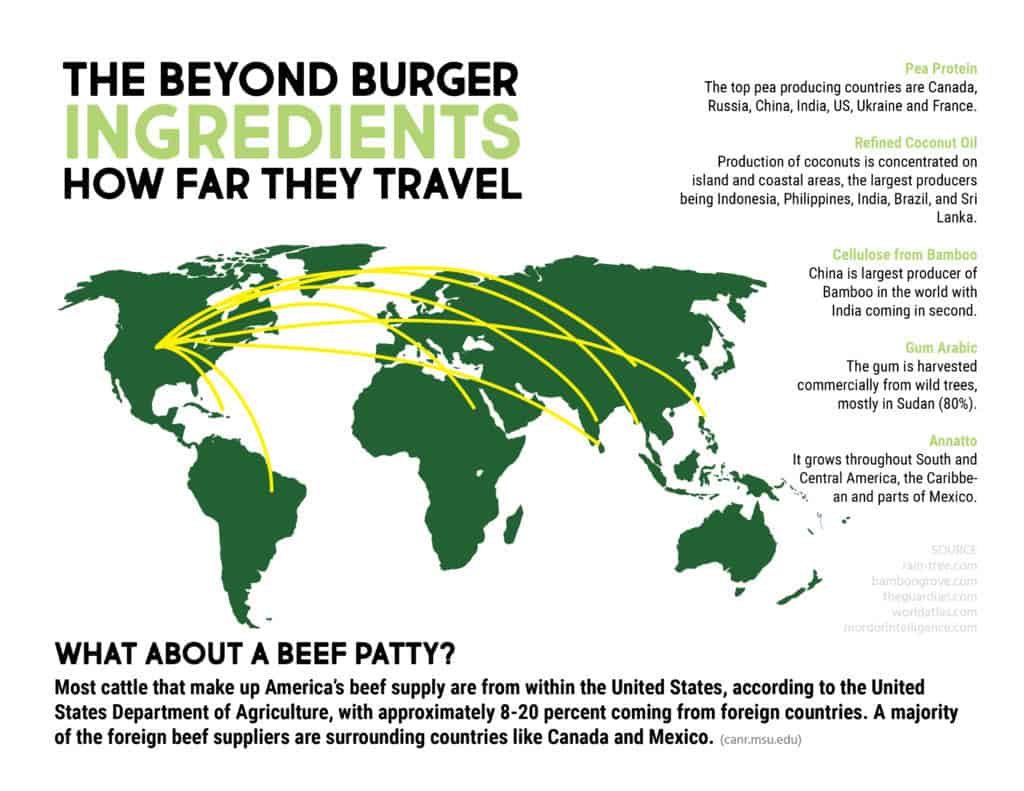
Can Manure Mitigate Climate Change?
We’re not going to ignore the fact that cattle do generate methane. Methane is a greenhouse gas that is generated from rice cultivation, natural sources like wetlands and during the normal digestive process of ruminant animals. It has a lifespan of 12 years.
With that being said, there is something called the carbon cycle. Methane from ruminant animals is a major part of this cycle, and it was back when 60 million buffalo roamed the plains.
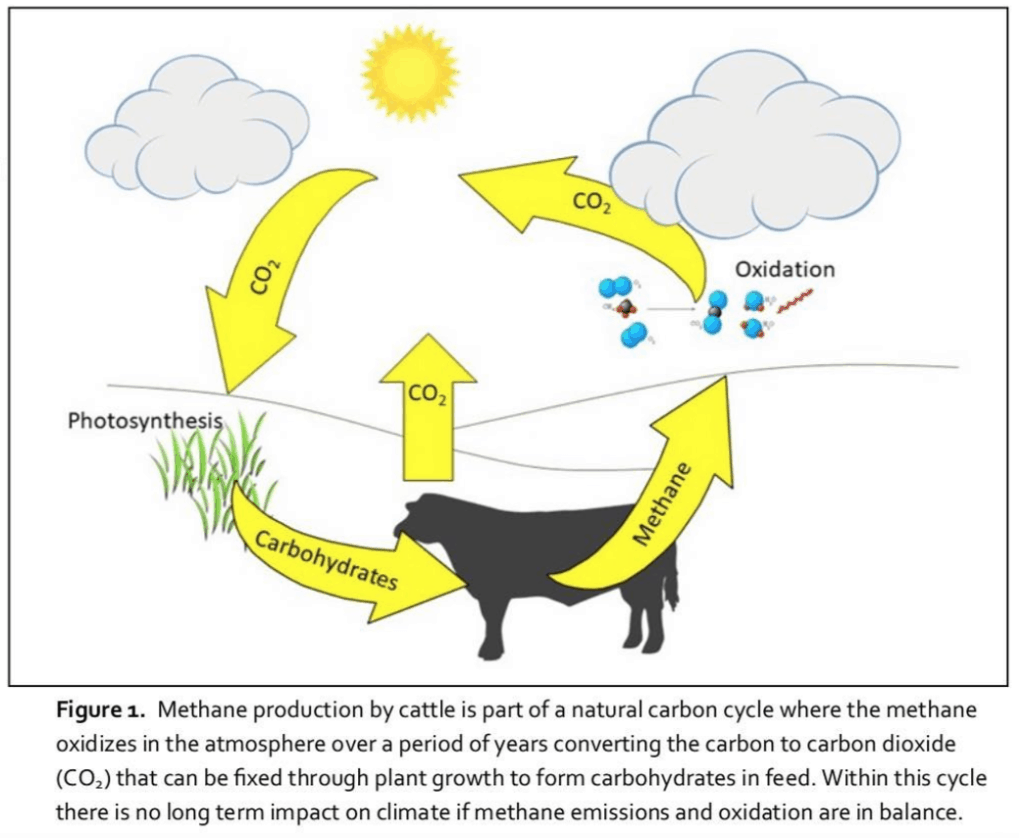
The more we learned about soil, carbon, and livestock, the more we came to understand how grazing cattle in a way that mimics wild buffalo, can potentially mitigate climate change.
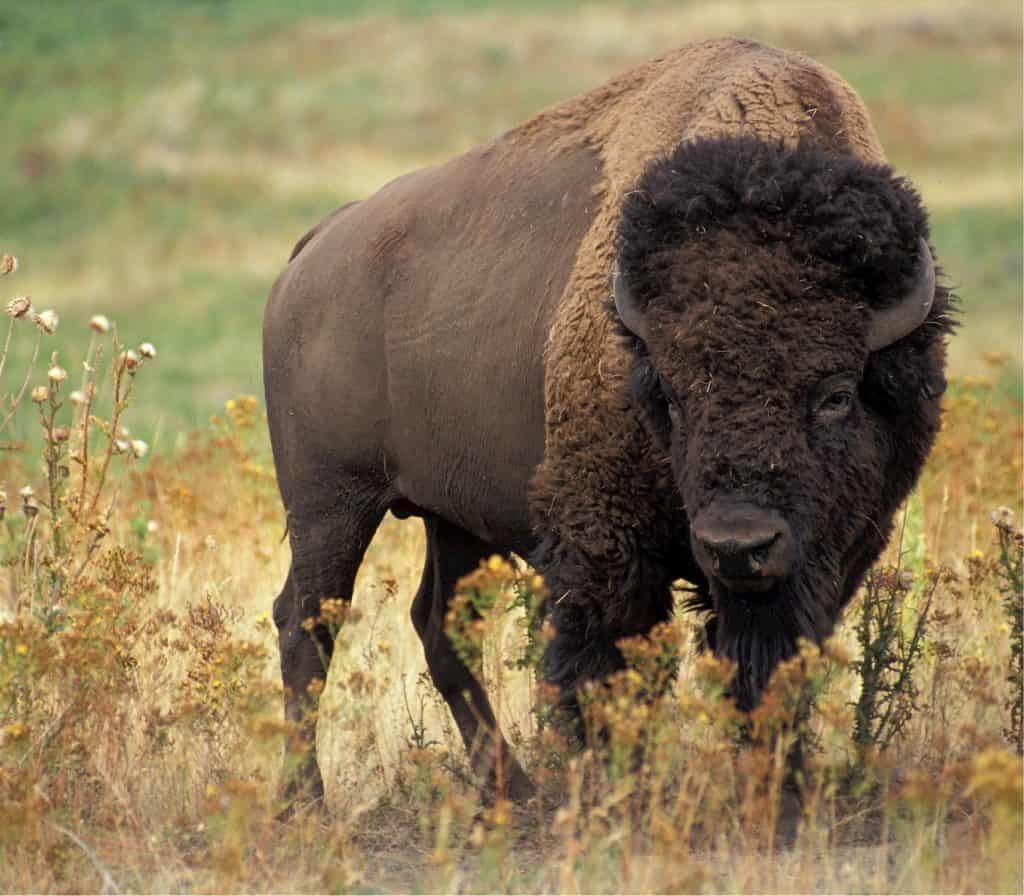
Holistic Cattle Management
This method has a few variations and a few names including holistic cattle management, adaptive multi-paddock (AMP) grazing, or “mob grazing”.
Livestock pastureland that is managed in this particular way becomes a net carbon sink, meaning it traps carbon from the atmosphere. (Carbon has a lifespan of 200 years.)
Check out Allan Savory’s TED talk, where the ecologist, livestock farmer, environmentalist, and co-founder of the Savory Institute, says this method can take enough carbon out of the atmosphere and safely store in grassland soils for thousands of years, bringing us back to preindustrial levels.
For more information on how livestock can mitigate climate change, check out Sacred Cow, a film project by Diana Rodgers, a dietician and author.
Crop Production and Greenhouse Gas Emissions
Not only does this “mob grazing” method trap carbon, it also doesn’t emit nitrous oxide, which is the third main greenhouse gas. Nitrous oxide is generated from the application of synthetic and organic fertilizers, the growth of nitrogen-fixing crops, the drainage of organic soil, and irrigation practices.
Nitrous oxide is 300 times more potent than CO2 and remains in the atmosphere for about 114 years.
Keep it Traditional – Our Takeaway
This in-depth review of the Beyond Burger has left us with one major takeaway. Eating a diet that mimics our primal ancestors’ traditions and works with nature, instead of against it, is the most natural, sustainable, and healthy option. (In our opinion.)
Pasture-raised animal foods and local seasonal fruits and veggies are highly nutritious and they don’t rack up thousands of food miles just to get from the farm to our table.
What do you think?
Before believing what Beyond Meat says on their website, we urge you to do your own research. This curiosity should never fade away. Dig deeper, improve every day, and ask questions.
“By shifting from animal, to plant-based meat, we are creating one savory solution that solves four growing issues attributed to livestock production: human health, climate change, constraints on natural resources and animal welfare.” – Beyond Meat Mission Statement
What do you think about the Beyond Burger? Let us know what you think the “future of protein” looks like in the comments below.
In Summary
Beyond Meat advertises that they are the future of protein, but they are far from that. Just because something is plant based, does not mean that it is better for the environment and it certainly does not mean it is better for your health. Focusing on eating less processed foods will always yield better results than seeking out highly processed plant based alternatives to real foods. The most glaring issue with Beyond Meat products is that they rely heavily on vegetable oils that oxidize while cooking, which is strongly correlated with increase risk of heart disease.
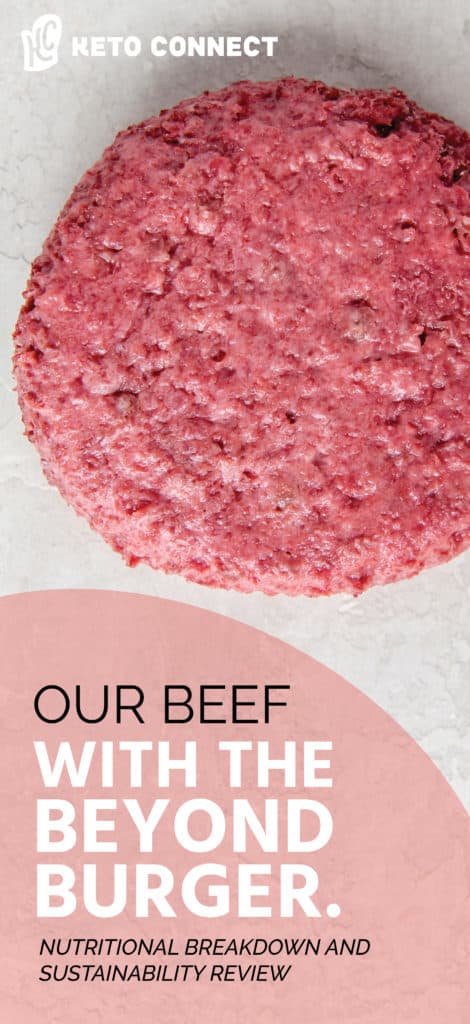
Written by
Megha Barot
Megha has always been a passionate cook, but she took this to a new level after starting her keo journey in 2015. She loves creating new recipes and producing educational content for KetoConnect, which she co-founded in 2016 with Matt. Her passion for healthy eating and personal development continues to thrive. She's the proud mom of two awesome kids.
